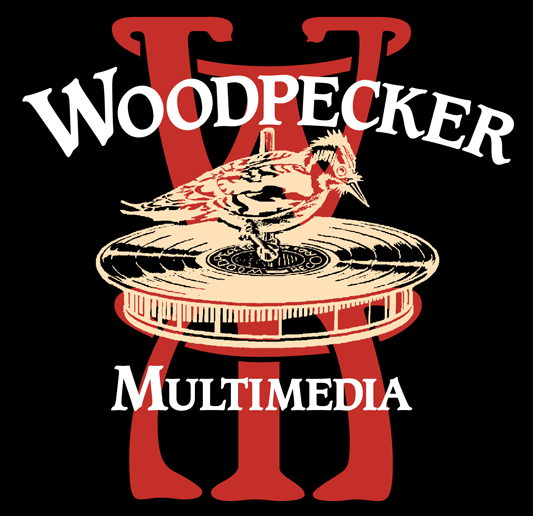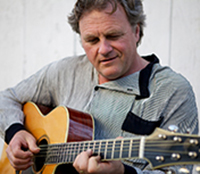 H
H

|
INTERVIEW WITH A SMALL NEWSPAPER IN HAMILTON, MASS. • In the publicity for your concert on April 14 you are billed as Harvey Reid the Master Minstrel. Can you talk about what being a minstrel in 2012 means to you? We've been called troubadours and minstrels over the centuries. I definitely see myself as a modern version of this ancient art form. When I read about what minstrels in the middle ages did, it's the same things we do today. We play songs, we chat while we are tuning, sometimes we say deep or funny things, tell stories and connect to current events or hot topics. Sometimes we bare our souls, or point out hypocrisy. It's interesting that when the recording industry began there were lots of records of just a person playing music. Somehow minstrels have been pushed aside in the music industry, and you almost never see just a person playing music on TV and there has never been a hit song that didn't have a band. But we're still out there and always have been, but there's no Grammy category. Adele's recent smash hit is as close as there has ever been to a pop hit that was a troubadour-type performance. It's not her playing piano and she overdubbed a harmony vocal, but other than that it's basically just a person playing music instead of a computer-made sonic collage which most pop music consists of. I'm a good example of an experienced modern minstrel who's content to be one. • You have been working as an independent musician for many years in a way that many musicians are adopting today due to the changing economics of the music industry. Can you talk about how you decided to forge an independent career and how life for an independent musician has changed in recent years? I chose to be independent because the year I release my first album of solo guitar music in 1982 was the year Madonna released her first album, and Thriller came out. The record labels I contacted turned me down. Old-fashioned, hand-crafted acoustic guitar music was as unfashionable as anything has ever been. But I knew I was going to devote my life to playing my brand of acoustic music, and I knew I could sell enough records "under the radar" to support myself, and I have been doing it ever since. • You are considered a master of many acoustic instruments and styles. Is there any specific area that is exciting to you at the moment? I have spent my career mixing together my own virtuosic acoustic music together with songs with words, and arrangements of traditional music. I'm still doing that, but I am working very hard now on a large effort to re-tool myself to help other people learn to play music. I'm not just working with advanced players, and in fact I am about to release this year my 4th large-scale project to help beginners. I consider it a huge breakthrough, and now that I have children, I am thrilled that I have found a way to make it a lot easier for children to play guitar at a much younger age than before. • Can you explain for non-musicians what a partial capo is and how it affects your playing? The partial capo is possibly my largest contribution to guitar. Capos have always been around, but if you cut them up so they only clamp across part of the strings they change the landscape of what it is possible to do. I was the first to really explore this idea, I am responsible for them being around, and I use them a lot in my playing. I am also now working on organizing and sharing my partial capo guitar knowledge. They give you new chords and new resonances, so I have a bigger sound than "normal" guitar players, and my guitar doesn't sound like other people's. I guess I have a more distinctive guitar sound as a result, and I have written and arranged a lot of music for the partial capo. • You talk a lot on your website about both connecting with your audiences and getting lost in the music that you are playing. Are these separate experiences or can they happen at the same time? I am a musician because of the places it takes me, much more than the financial rewards it brings. (Though I have made a nice living...) People assume that everyone wants to be a musician because of the fame, glory and money. Music has always taken me to mysterious and excellent places, and I still don't have an understanding of where I "go" or a language to describe it. I learned as a street musician about the "zone" you can go into where people gather around you and throw money in your case. It's not talked about much because it sounds new age or corny, but athletes go into these states too, and maybe office workers too (chuckles...) I have never found anything that compares to the way that playing music occupies my mind, my soul, my heart, my body. To be able to earn a living doing that is pretty special and that's what I have done for almost 40 years. |
